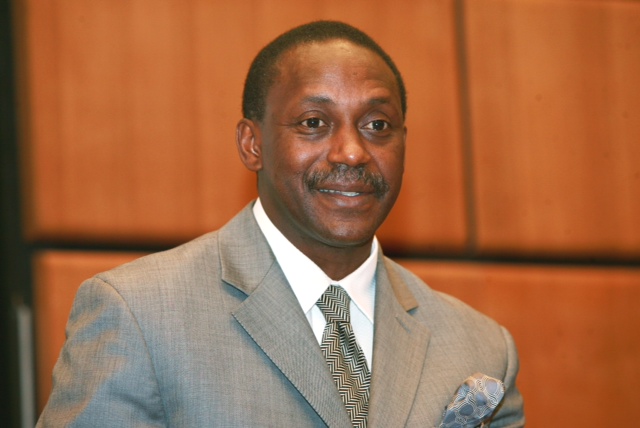
Take advantage of opportunities in Africa - Dr Yumkella tells youth
A former United Nations Under-Secretary-General, Dr Kandeh Kolleh Yumkella, has challenged the youth of Ghana to seize the abundant opportunities Africa provides in order to be agents of transformational change on the continent.
He said there was too much negative information on Africa in the international news media, which generalised and exaggerated incidents happening in a country as though they were happening in the whole continent.
“But I want you, our children, to have a lot of hope, and see a lot of opportunity and have the confidence that you will transform this continent,” he told faculty and students of the University of Ghana, students of the Presec Senior High School and a cross-section of the public at the 2017 Aggrey-Fraser-Guggisberg Memorial Lectures.
The 2017 lecture was on the theme: “Africa: A continent of hope, opportunity and transformation.”
Lost decades
Setting the context, Dr Yumkella said although he did not subscribe to the perception, people believed that Africa had the Garden of Eden syndrome; “everything can grow here.”
In addition to that was the abundance of natural resources.
In contrast, people living in temperate zones have to be creative in the production and storage of food.
With all the endowment, however, the continent, during the 70s, 80s, 90s and early 2000s, seemed to have lost its way, with some people describing those periods as the “lost decades of Africa”.
Descriptions
Dr Yumkella pointed out that there were a lot of articles written about the continent which portrayed the hopelessness of the situation.
Missed opportunity
Quoting Fareed Zakaria’s book, “The post-American world”, Dr Yumkella said the decades missed were decades when the world experienced the fastest growth rate in history.
Global output increased from about $22.8 trillion to $53.3 trillion by 2007 and before the financial crisis, global trade increased by 133 per cent, with China in that period taking over 500 million people out of abject poverty.
“But in Africa, in that same period, poverty increased, with 93 million people, and in Ghana by 1975, the economy had shrunk by 12 per cent, inflation at one point was 30 per cent and 116 per cent by 1997,” he said.
“That was Africa, while the world moving ahead, we were moving behind,” Dr Yumkella added.
Change
“By the 2000s, change occurred,” he said, attributing it to change in govt structures; from bad regimes to good governance, fiscal discipline and the rhetoric of the international media.
Dr Yumkella said the projection now was that by 2050, there would be about 2.2 billion Africans, an opportunity for food production to feed the millions in Africa and others in the world.
He added that indications were that Africans had leap-frogged in embracing mobile technology, with the contribution of information technology (IT) to gross domestic product (GDP) projected to be 10 per cent by 2015.
Outlining five constraints to the achievement of the transformational projections, Dr Yumkella mentioned demographic transitions, investments, infrastructure development principally in the energy sector, good governance and climate change.
In managing the dynamics, Mr Yumkella proposed a developmental state with a progressive mindset on private sector development, clear policies on the energy sector and the use of Africa’s wealth to create opportunities for the youth.
